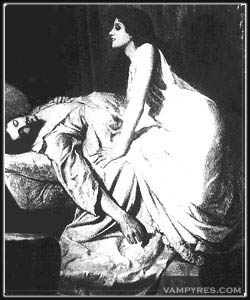

English 200
Professor Richard Burt
Office: 291 Bartlett Hall Phone: 545-2974
"Do not fear ever to think"
---Bram Stoker, Dracula
Description: This course will focus on a particular literary genre, the Gothic, across drama, the lyric, the short story, and the novel, and print and film media. We will primarily be reading literature, but we will also consider film adaptations of three assigned novels. We will read the required texts and films closely, paying attention to their formal characteristics (narrative structure, characterization, language, theme, and so on) and engaging questions about literary criticism (psychoanalysis, deconstruction, feminism, Marxism, queer theory, formalism, and historicism), literary history, the sublime, adaptation, camp and schlock eroticism in the (B) horror film, and media theory as they are raised by the texts and films we'll read and view.
My job is to open up possible meanings and readings for you, not to close them, fix a single meaning as if it were THE meaning of the text or film. Literature and film are polysemous. Literature and film do not mean just anything, however. Persuasive readings are grounded in the text or film.
English 200 is a gateway course. You have to get a B/C or better in this class to become an English major and to take other English Department courses. Active class discussion is crucial . Passivity in class, including silence, looking blank or bored, putting your head on the desk, and so on, will not aid your final grade, to put it mildly. Twenty five percent of your final grade will be based on your contributions to class discussion. (Of course, just saying anything for the sake of talking won't help your final grade either and may even hurt it.)
This is not a remedial composition course. It is a literature course. You should by now know how to write a persuasive essay, have mastered the basics of composition (what a paragraph is, what a thesis is, and so on), and you should know how to write grammatically. For more information on writing, see paper topics. If your paper has grammatical errors and / or shows you have not mastered the basics of composition, your paper will receive a "C/D" at best.

